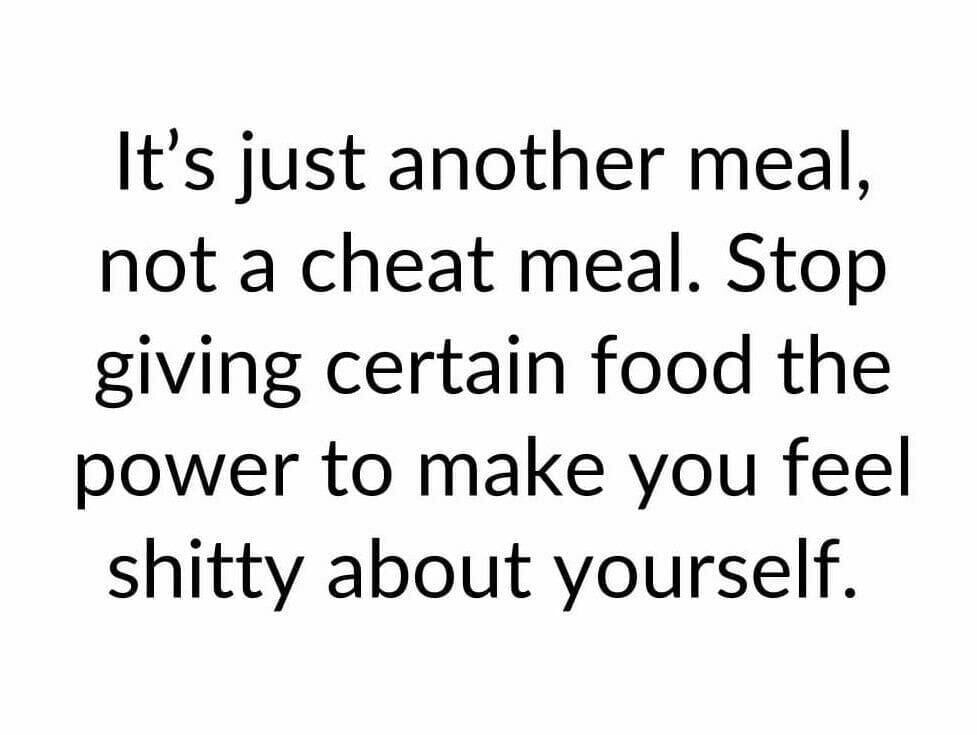
DON’T CHEAT YOURSELF
⋅
❌The only logical way a “cheat meal” could make sense is if you were in a serious relationship with a diet. It sounds silly, but that is exactly what it is, whether you’re consciously aware of it or not. This term especially runs rampant in the diet and fitness communities. Some individuals have cheat meals, while others give themselves permission to have a cheat day. By adopting this toxic mindset, you’re subconsciously reinforcing to yourself that food has moral value. And in doing this, you are basing your value upon which foods you do, or do not eat. In short, this is a socially accepted way to engage in an eating disorder.
⋅
One would only need a cheat meal or day because their current lifestyle is unsustainable. It’s a softer way to label the binge-restrict cycle. Cheating on your “diet” by giving yourself temporary permission to eat off-limit foods only adds fuel to the fire. You likely won’t even enjoy your “cheat” meal because your body and brain are in feast or famine mode. And cheating implies that you are doing something wrong, and that you are trying to get away with something you weren’t supposed to do. There is an adrenaline rush to this —almost a game you play with yourself hoping you won’t get caught. Except … the only person you’re ultimately cheating on is yourself.
⋅
The more you label food as good or bad, the more power food has to define who you are. Food has no moral value. Eating food is never wrong! Food is a necessity to being alive. You wouldn’t cheat on breathing air, would you? Food is no different. You are capable of altering your relationship with food from a dysfunctional one to a healthy one. A good place to start is with your vocabulary. Eliminate the word “cheat.” People crave what they cannot have, whether they genuinely want it or not. Remind yourself that you can have all your favorite foods at any time. And no matter what happens, it’s just another meal and another chance to try again. ~Britt?